Breeds
Breeds impact the well-being of your flock
Importantly the breed or breeds you pick will have an impact on the health, contentedness and productivity of the individual hen and the
flock. Some breeds may not be suited to a mix flock or might be too ‘flighty’ to keep happily in a back yard for example.
Keeping a combination of chickens has its advantages as different birds give different things, including look & personalities, plus certain chooks are better suited for different conditions and more disease resistant. It also means that hens go broody or moult at different times so your months of ‘egg laying’ are stretched out. The following is not an exhaustive list, but more the breeds we specialise in here at Schoolhouse Farm. We happily recommend any of these breeds, as long as they suit your circumstances.
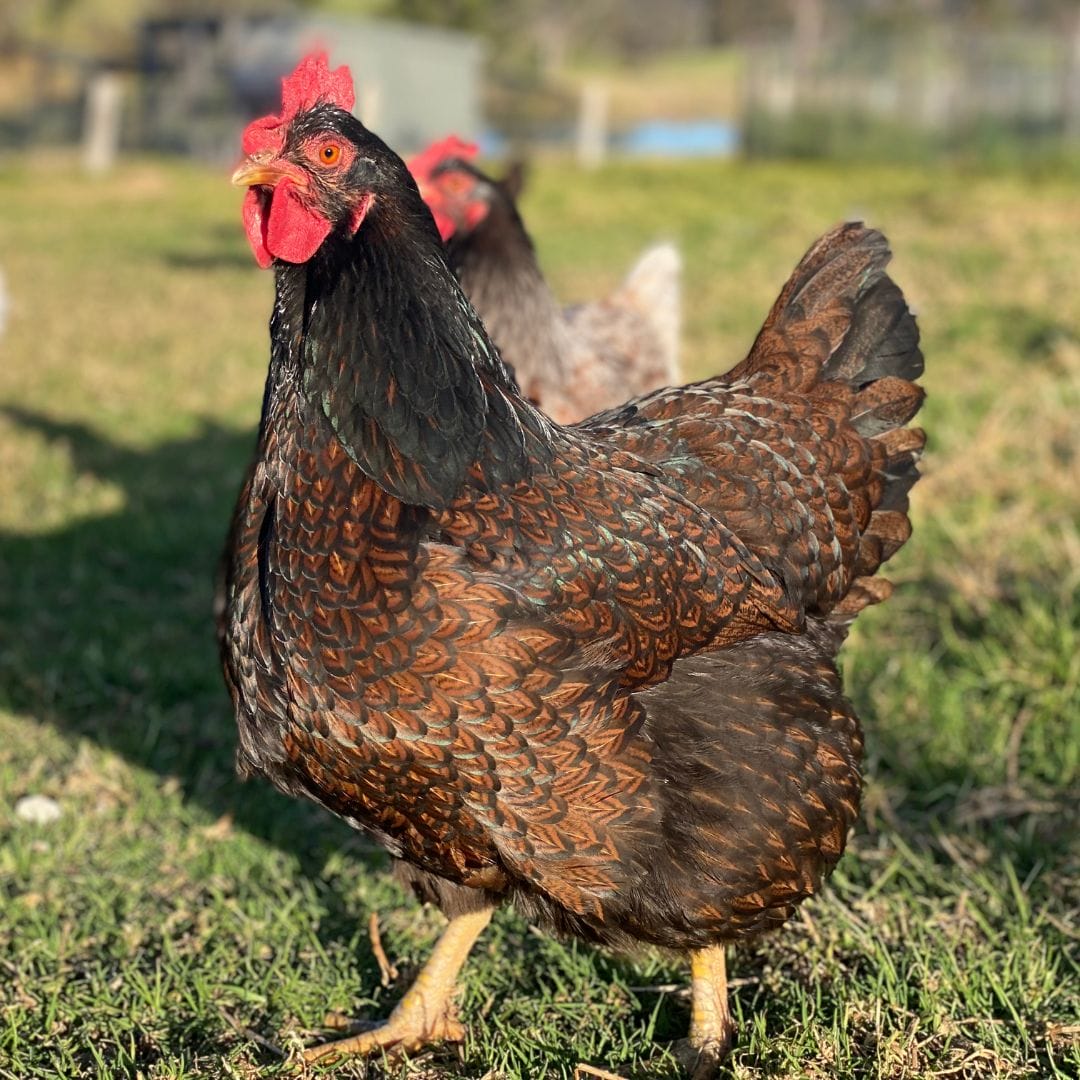
BARNVELDER
✓ Eggs ✓ Easy-going ✓ Duel-purpose ✓ WOW
BROWN LEGHORN
✓ Eggs ✓ Can be flighty ✓ Inquisitive ✓ WOW
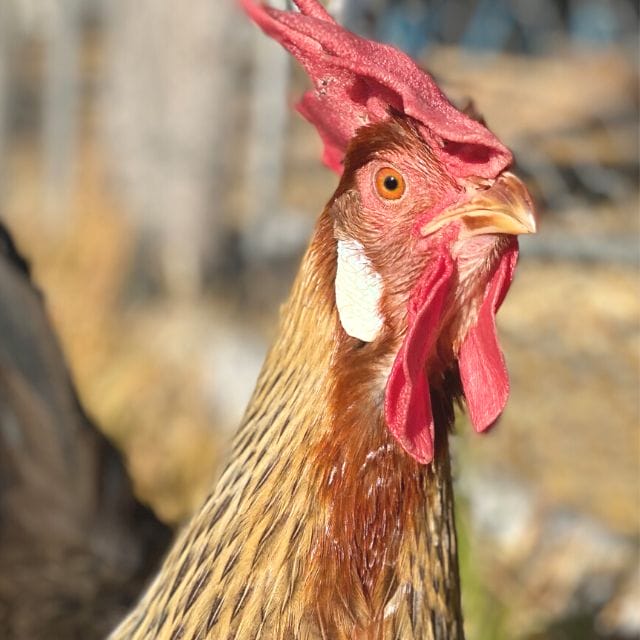
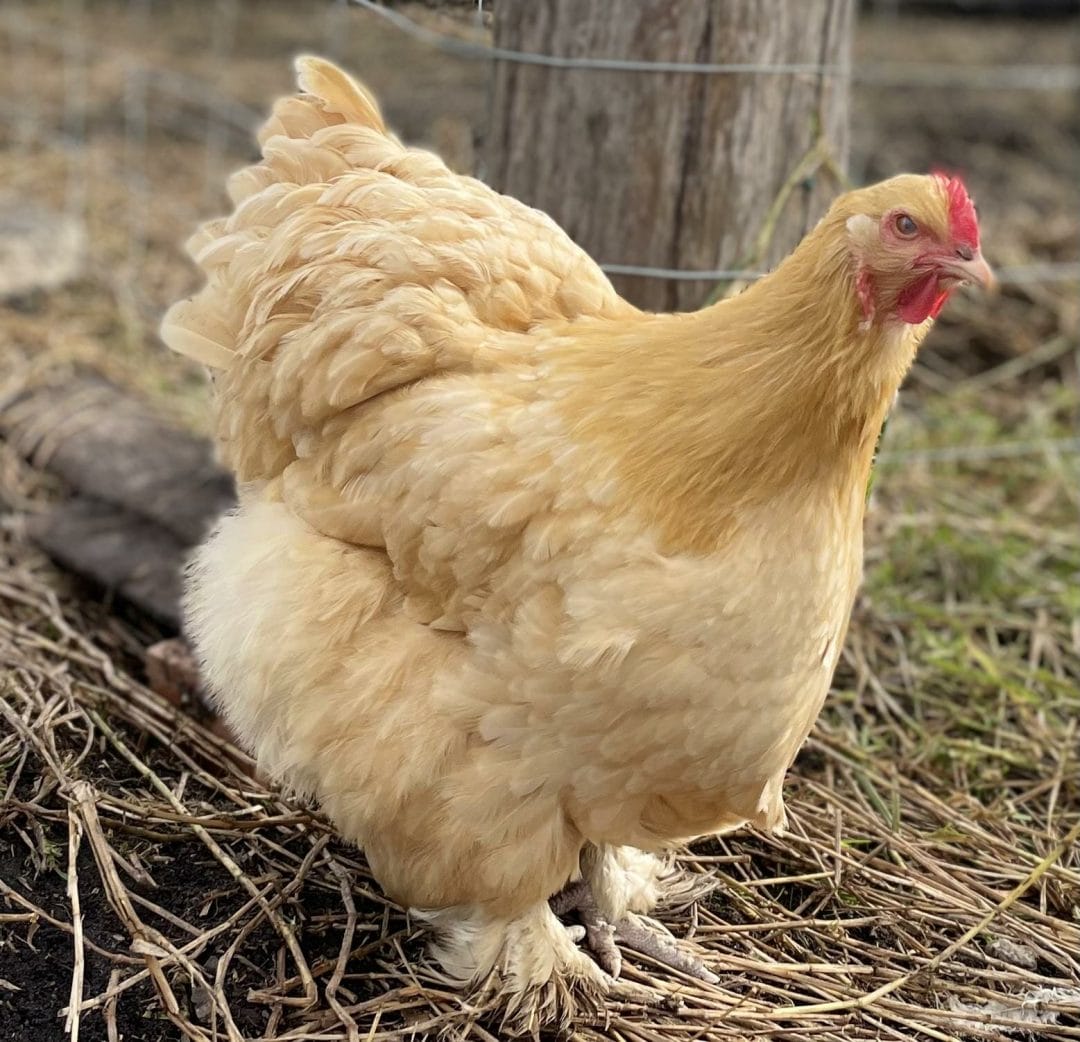
COCHIN
✓ Calm ✓ Duel-purpose ✓ Broody/Motherhood ✓ WOW ✓ Pets
Cochins are fabulous ‘incubators’ – they are reliably (and regularly!) broody, sitting contently on eggs and are happy to adopt chicks as well. It you want to breed yourself, particularly if you have kids, these birds are a lovely addition to your flock. Because of their gentleness they can find interacting with other hens challenging, so keeping at least two together in a mixed flock is a good idea.
Australorp
✓ Eggs ✓ Relaxed, self-contained ✓ Duel-purpose
The most common colour is the original black with a luscious green sheen, having black legs and large distinctive black eyes too. You can now also get them in shades of blue and ‘splash’ (although not common) All are totally lovely to look at. They are easy going, particularly to their humans, although they can be assertive and often ‘alpha’ in the flock.
Their personality generally means they are happy to be housed, won’t try to fly over fencing and are generally good in a mixed-flock..
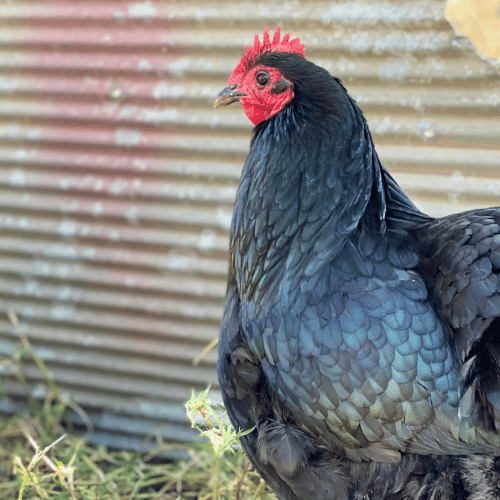
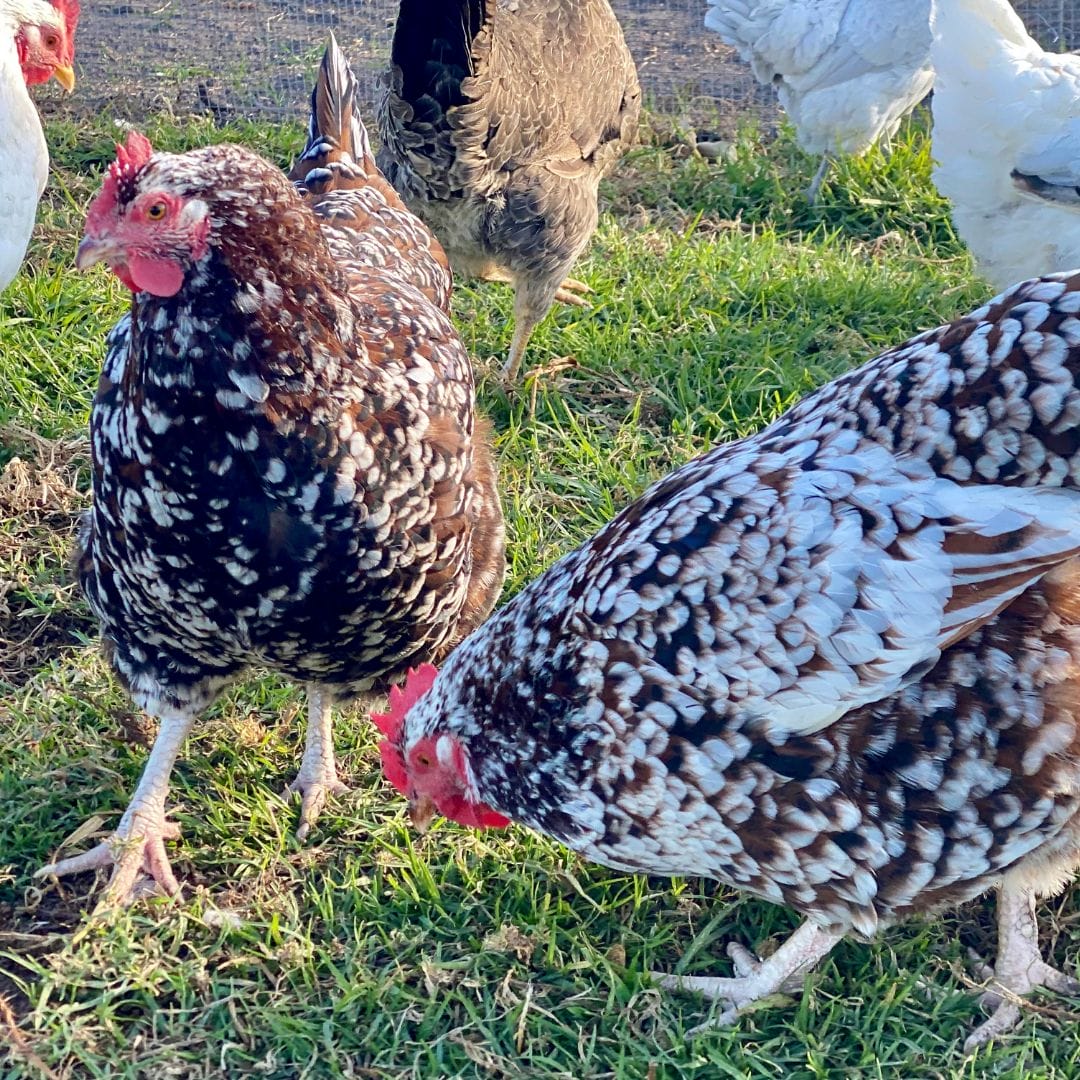
SPECKLE SUSSEX
✓ Eggs ✓ Friendly/interactive ✓ WOW ✓ Pets
ARAUCANA
✓ Eggs ✓ cheeky/free-spirited ✓ Broody/Motherhood ✓ WOW
They are not highly broody but when they do decide to sit they make excellent mothers, very attentive to their brood.
They are good garden workers but if you free-range them you should probably consider clipping their wings – they have no respect for fences and ‘no-go’ zones.
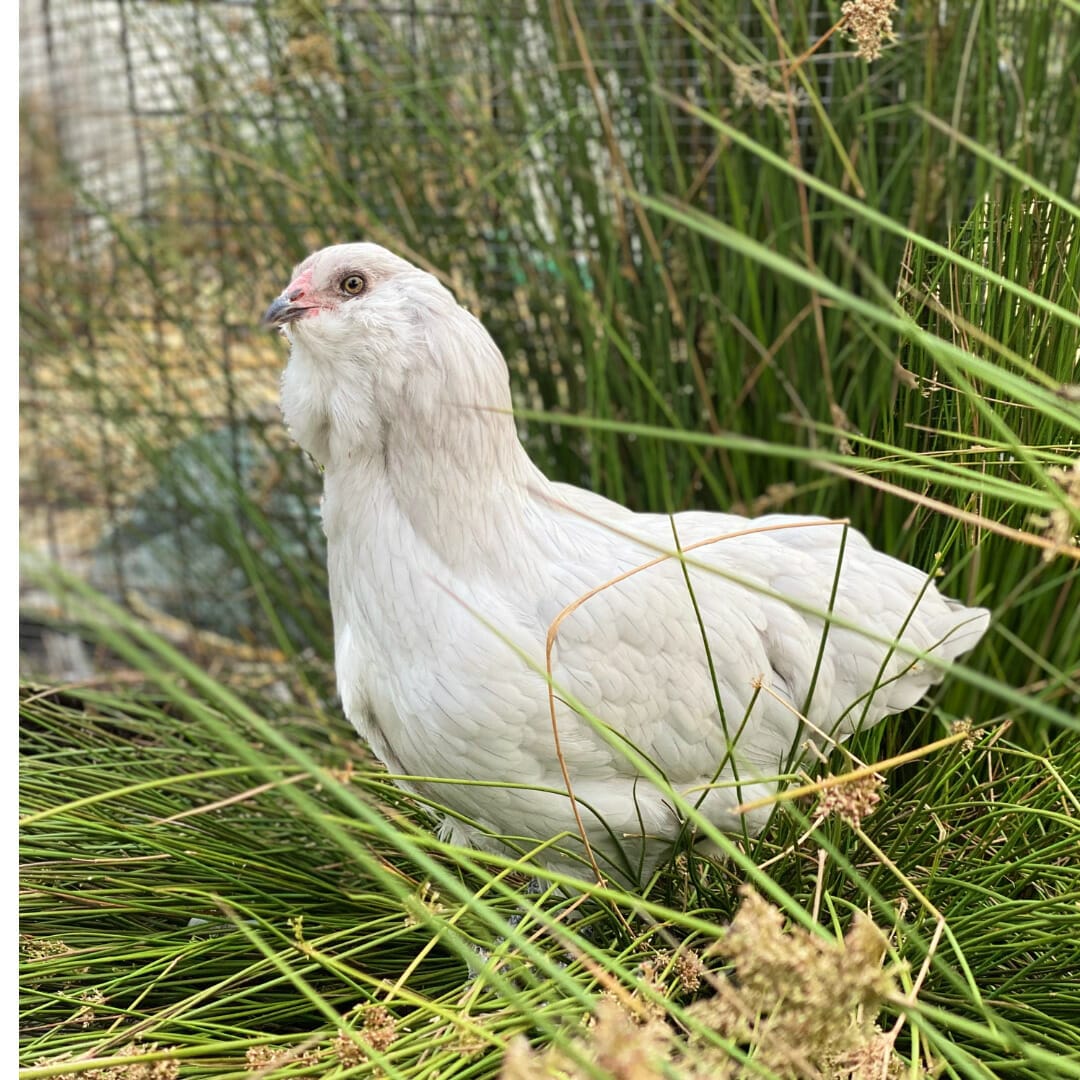
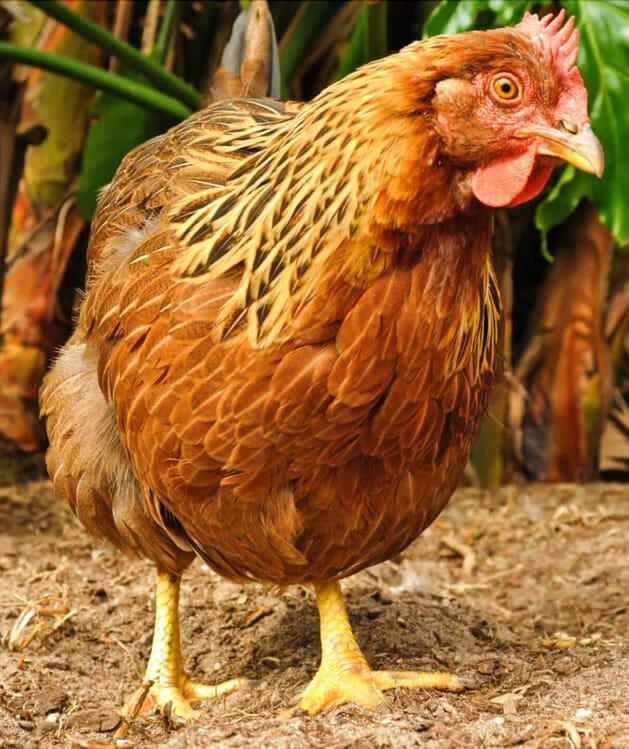
WELSUMMER
✓ Eggs ✓ Easy-going ✓ Duel-purpose
They mix well with other breeds, making them ideal in a mixed-flock. They are excellent foragers too, meaning they will happily explore whenever allowed. They do not tend to go broody but, reportedly, when they do, they sit and mother well.
WYANDOTTE
✓ Calm/Interactive ✓ Duel-purpose ✓ Broodiness/Motherhood ✓ WOW
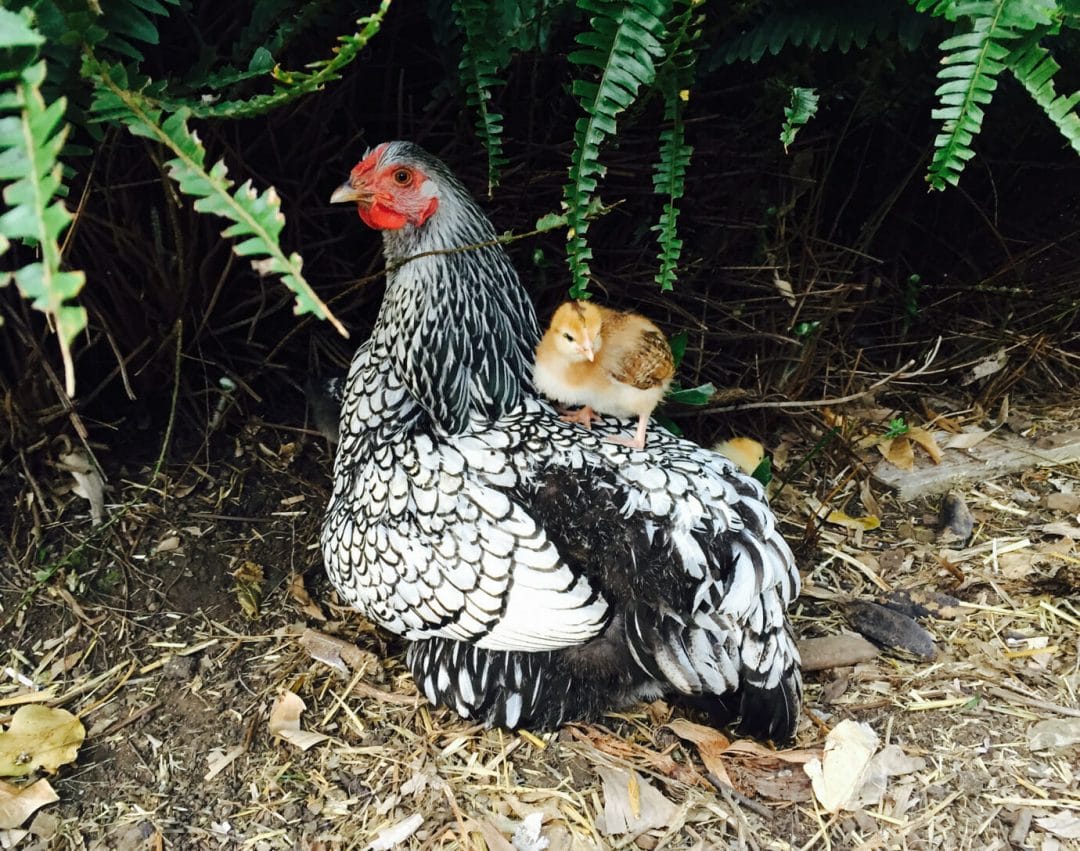
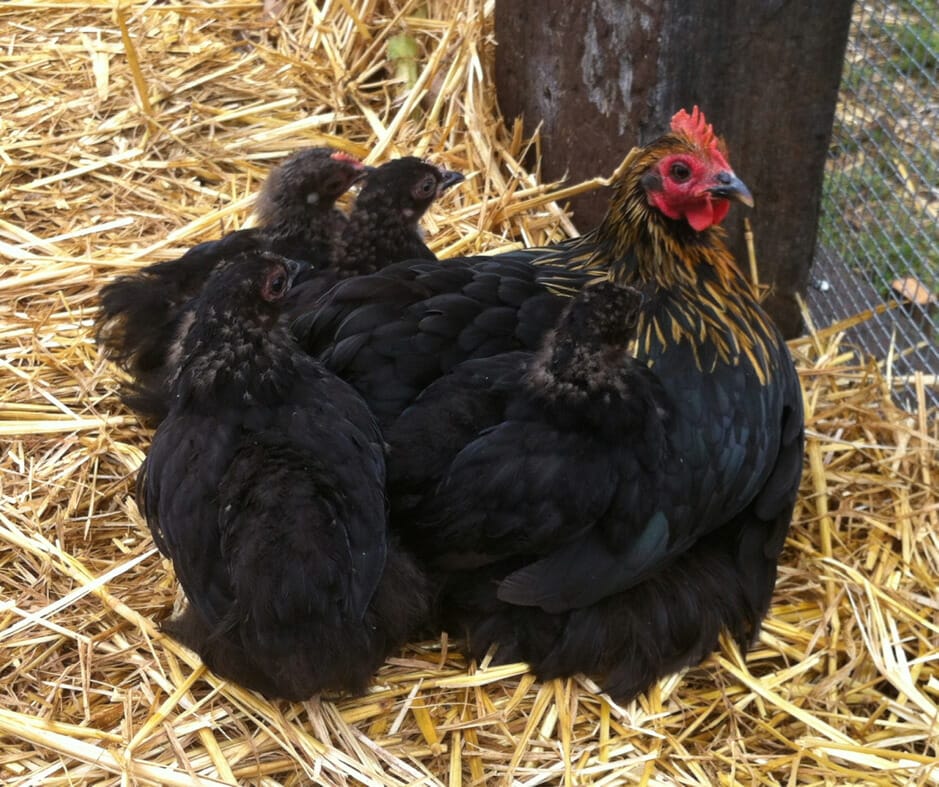
PEKIN BANTAMS
✓ Gentle and calm ✓ Broodiness/Motherhood ✓ Pets
The upside of their size is that they don’t eat much, can be held in much smaller areas and won’t impact too much on your back yard. They come in a variety of colours too so it really helps when you are going for the ‘United-Nations’ look!
